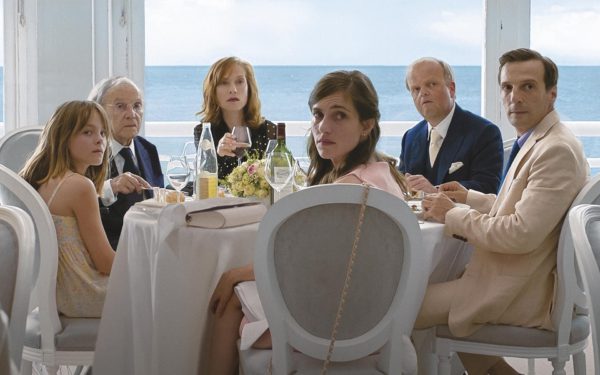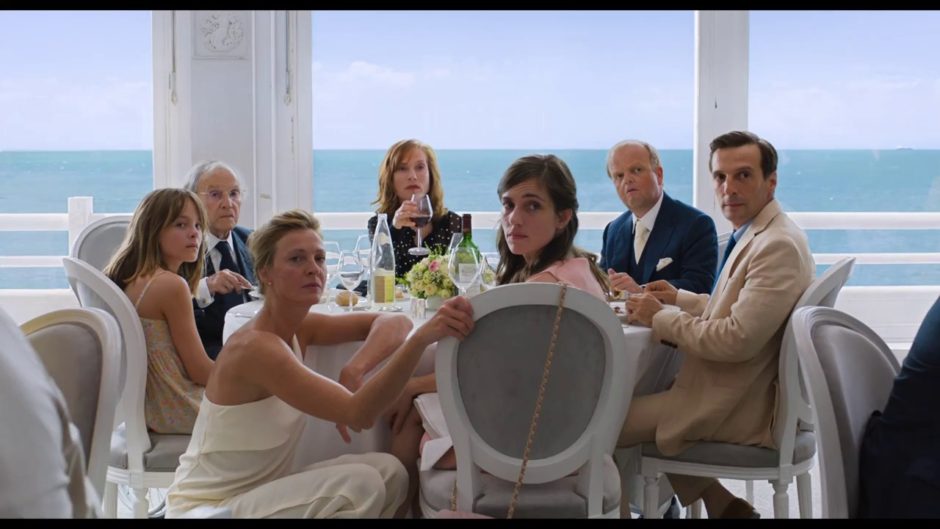The Laurents are a wealthy French family living off the fat of the land in the port of Calais. As they sit around a table in their palatial home enjoying a fine meal prepared by their eager-to-please Moroccan cook, one might think they epitomize bourgeois contentment. Think again, Austrian director Michael Haneke suggests in his newest film, Happy End, which opens in Canada on January 12.
Beneath the placid, unhurried surface of their lives lies considerable turmoil. This is a secretive and dysfunctional family. Appearances can indeed be deceptive.
Anne (Isabelle Huppert), the heir to a construction business, is driving to a building site where an accident has occurred. This may be a costly mishap for the company. The supervisor of the project, Pierre (Franz Ragowski), Anne’s son, may well have been responsible for it. He claims he’s depressed, but as far as Anne is concerned, he’s simply incompetent.
Thomas (Mathieu Kassovitz), Anne’s brother, is having a torrid affair, as his steamy emails indicate. His second wife, the mother of their new-born child, is none the wiser.
Eve (Fantine Harduin), Thomas’ thirteen-year-old daughter from his first marriage, has returned to his household following the death of her mother by drug overdose. Eve is a quiet and respectful girl, but she harbors secrets. In an early scene which sets the tone of the movie, Eve feeds antidepressant pills to her hamster to gauge what its reaction might be. Later, she breaks into her father’s emails.

Georges (Jean-Louis Trintignant), the 85-year-old family patriarch, appears to live in a bubble. He’s had his fill of life and seeks a way out. In desperation, he asks his barber, a timid soul, to purchase a gun and ammunition. Having been politely rebuffed, he stops a group of African migrants on the street and makes his pitch. The soundtrack is turned off as this exchange unfolds. Finally, Georges finds someone who may extricate him from his misery.
Haneke returns to the migrants in another scene when Pierre brings them to a fancy restaurant in a clumsy attempt to shame Anne and her well-heeled friends for not caring about refugees. Once again, Pierre proves to be out of his depth, an embarrassment to the Laurents.
These vignettes are skillfully stitched together, but Happy End, its accomplished cast notwithstanding, is often more dull than stimulating.
